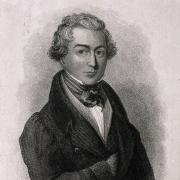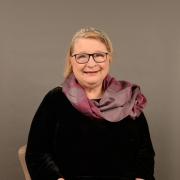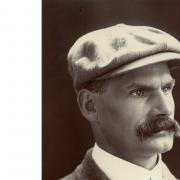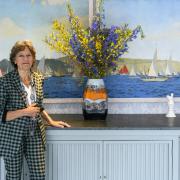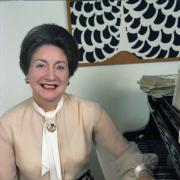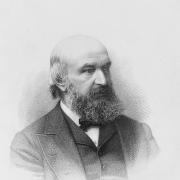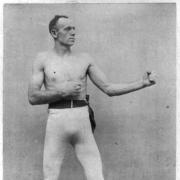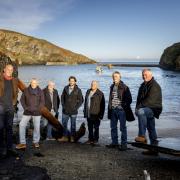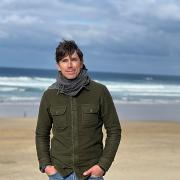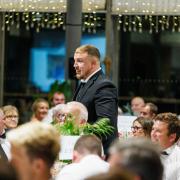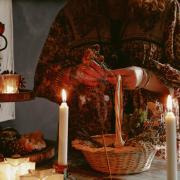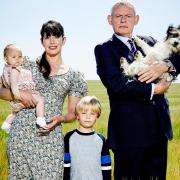Adventurer Gail Muller was told she would be in a wheelchair at 40 - at 41 she walked the 2,000-mile Appalachian Trail and now at 43, she has started the first of America's most gruelling three-long distance hikes, she tells Susan Griffin
‘Can you hear me okay?’ asks adventurer Gail Muller, her voice reaching me from a tipi in rural Oregon. She was supposed to be hiking the Continental Divide Trail, one of the three long-distance hikes in America known as the Triple Crown of Hiking, but called it a day after 250 miles.
‘It’s not the right time for me and I realised it’s not what I was looking for coming out of Covid,’ explains Muller, 43, who lives in Falmouth.
Instead, she caught a slow boat to Alaska, where she camped on the deck for three nights and watched pods of Orca whales, travelled to Seattle, and then onto Oregon ahead of her return to Cornwall where she’ll hatch new plans. Muller prefers life on the move, and that’s no surprise given she was told she’d be in a wheelchair by the age of 40.
And yet, at the age of 41 she was walking the Appalachian Trail, more than 2,000 miles of wilderness that runs along the right side of America, from Maine to Georgia. It’s this life-changing trek she recounts in her new book Unlost, along with the reality of living with chronic pain and the adversity she’s overcome.

Ironically, the book only came about because she was forced to stay put for a while. ‘I had all sorts of plans last year, the American Pacific Crest Trail, and the Te Araroa trail in New Zealand but of course those things went in the bin [because of lockdown]. I had a bit of a sob and thought, how can I turn this s**t show into something positive? and realised this was the space I needed to write the book that’s been in me for so long,’ says Muller.
‘I’ve always been a voracious reader, and interested in people, which is probably why I went into teaching, and I’ve used my experiences to help people who are struggling at times, but it was after hiking the Appalachian Trail, which was so unique and incredible, that I decided to tie it all up together.’
Nature has always been restorative for Muller. As a child growing up near Mabe she recalls being ‘very outdoorsy and free’.
‘Mum and dad gave us lots of space to be children and I had a lovely time running around fields, climbing trees and going down to beaches like Durgan, those little pockets of peace and wonder in Cornwall,’ says Muller who was born with her feet severely turned in, although they’d never hindered her once rectified by wearing casts.
In fact, nothing held her back. Not even the concerns of the consultant who informed her as a teen she’d be in a wheelchair unless she didn’t get her feet broken and reset. ‘I didn’t understand the weight or gravity of what he was talking about, so I just carried on. I rowed for the local gig rowing team, hiked, travelled the world, but in my mid-twenties, my life changed completely.’
The ‘amorphous’ pain began with a back twinge, but got progressively worse until it impacted all areas of her life, from what she wore to how she walked, but there was no diagnosis and therefore no chance of a cure. ‘It was a complete bafflement to everybody,’ says Muller.
The sense of hopelessness was debilitating, but she didn’t want to be defined by the pain, and was determined ‘to experience as much of this world as I can in this short life,’ which is how she found herself working in Italy.

And it was here, at a clinic in Como ‘amid mountains, lakes and deep depression’ that she was told her teeth placement was likely to be the root cause. There was shock, and disbelief, but she could only trust their judgement as the alternative was too much to bear. She began, very slowly, to rehabilitate and rebuild, and in doing so, reclaim the many years she’d lost when the pain had become so ‘terrifying’ she’d wanted to die.
‘It’s a journey so many other people are experiencing too,’ highlights Muller who’s keen to promote conversation around invisible illness and the mental as well as physical toll.
‘People have expectations for you because they can’t see it, so you have to keep reminding them and that’s belittling for you and embarrassing for them. So, you might decide not to mention it and soldier on but then that can be sub-par. It’s hugely tricky. I’ve lived that life and sometimes still do.’
As painful as it’s been to reflect on the hardships she’s endured, it’s been cathartic too. ‘Looking back at who I was when I was at my worst with the pain and other things from my life, like the sexual assault that happened on my A-level results night, these are things I hadn’t wanted to look at head-on. Now it’s like I’ve given it to the universe to hold for me, rather than holding it inside my chest.’
It was 2019 when Muller felt like she needed to make a profound change. Cornwall had always provided a form of respite, especially from the hubbub of living in London, but she realised she needed to fully immerse herself in the great outdoors.
‘I’m not a super hippy but if you throw yourself into the natural world, it will teach you what you need to know about yourself because it’s what we are, it’s what we’re from.’
She first find out about the Appalachian Trail in the late Nineties when she read Bill Bryson’s travel memoir. ‘He was beholden to nothing and no one. He was free,’ writes Muller in her book and she harboured the desire to experience a similar liberation.
And so, in June 2019, she found herself in Maine about to embark on a journey in the most epic, and literal, sense.
‘All I could think about was the initial 100 Mile Wilderness. That’s what I researched, but beyond that, there was no plan, which was completely overwhelming and liberating. I thought I’ll just keep walking, which I did for about 20 to 25 miles a day. There was no self-indulgence, no distraction, and the isolation of thousands of miles of forest was both humbling and awe-inspiring.’
The book isn’t just an ode to the curative nature of the wilderness, but to the fellow hikers she met along the way, the ‘craziest people in the best possible way’.
‘The trail is full of people searching for something, leaving something behind, or striving to be better. You’d often come across someone on their knees sobbing, or whooping and singing their head off, just regular folk having their own meltdowns or epiphanies, but that’s the trail for you,’ says Muller whose journey concluded in mid-December.
‘It was freezing, and my foot was in a bad state. I didn’t realise at the time, but it was broken in two places. I’d got through it by sheer bloody mindedness and determination.’
It was challenging to find herself back in Cornwall and holed up in her house while she rested her foot, and then of course Covid happened, and the world shut down. ‘But there’s always adventure to be found, even if you have to stay in one place and I actually fell in love with my next-door neighbour during lockdown after talking over the garden fence for hours each day,’ says Muller who notes it suits them both that she’s forever heading off on another adventure.
‘There is always another journey in me, but for now I’m looking to do some shorter European hikes rather than isolate myself somewhere for six months.’
And in between those expeditions, she’ll continue to relish the soothing sights and sounds of her home county. ‘Wherever you are in the world, Cornwall never leaves you, it’s always in your blood,’ remarks Muller whose favourite walk is the coastline from Falmouth to the Helford Passage. ‘You move from open sea into the creek, and back again. It’s my go-to, my running route, my thinking route, my hiking route. It’s home.’
Unlost: A Journey of Self-Discovery and the Healing Power of the Wild Outdoors by Gail Muller is out now (gailmuller.com)





